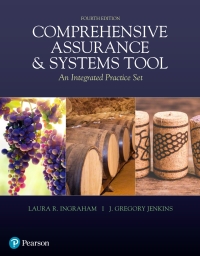Question
Another reason which once was ; but which, to the same extent, is now no more , has done much in maintaining our institutions thus
"Another reason which once was; but which, to the same extent, is now no more, has done much in maintaining our institutions thus far. I mean the powerful influence which the interesting scenes of the revolution had upon the passions of the people as distinguished from their judgment. By this influence, the jealousy, envy, and avarice, incident to our nature, and so common to a state of peace, prosperity, and conscious strength, were, for the time, in a great measure smothered and rendered inactive; while the deep-rooted principles of hate, and the powerful motive of revenge, instead of being turned against each other, were directed exclusively against the British nation. And thus, from the force of circumstances, the basest principles of our nature, were either made to lie dormant, or to become the active agents in the advancement of the noblest cause--that of establishing and maintaining civil and religious liberty."
"But this state of feeling must fade, is fading, has faded, with the circumstances that produced it."
According to the rest of the Lyceum Address, when these powerful passions are not directed outwardly (as they were at the British during the Revolutionary War, or at the Soviet Union during the Cold War), what can happen to a country like the United States? What will be the condition of the country, and who will take advantage of this situation?
Step by Step Solution
There are 3 Steps involved in it
Step: 1

Get Instant Access to Expert-Tailored Solutions
See step-by-step solutions with expert insights and AI powered tools for academic success
Step: 2

Step: 3

Ace Your Homework with AI
Get the answers you need in no time with our AI-driven, step-by-step assistance
Get Started


